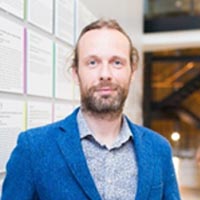
David Leys
David is a Professor of Structural Biology and lead principal investigator of the SuCCEED prosperity partnership.
David has been studying structure-function relationships of enzymes, especially cofactor dependent system since his PhD. His work has included elucidation of novel mechanisms of interprotein electron transfer, substrate channelling strategies, atomic insight into enzymatic H-tunnelling reactions, the molecular basis of organohalide respiration and discovery of a novel cofactor prFMN. These fundamental research insights are used to guide application in development of sustainable biocatalytic routes or bioremediation processes.
He has been awarded a Wolfson Merit Award (2016), the 2015 Wain Medal, RSC Rita and John Cornforth Prize (2009), EMBO Young Investigator (2004); Royal Society University Research Fellowship (2003) as well as prestigious ERC grants in 2008 and 2015.
Contact David
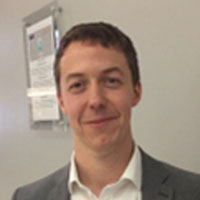
Anthony Green
Anthony is a Professor of Organic & Biological Chemistry and Director of the Manchester Institute of Biotechnology.
Anthony’s research team specializes in the design and evolution of enzymes with new catalytic functions. His lab has pioneered methods to build enzymes from an expanded alphabet of amino acids. Using these techniques, entirely new modes of catalysis can now be programmed into enzymes. Beyond fundamental research, Anthony works in partnership with global companies and philanthropic foundations to develop catalytic technologies to address societal needs. Recent examples include the development of engineered enzymes to efficiently deconstruct plastics, and the development of a biocatalytic routes to global health drugs. Anthony is Director of the International Centre for Enzyme Design and the CoEBio3 Centre of Excellence in Biocatalysis.
Anthony’s research has been recognized by the award of the RSC Harrison-Meldola Prize (2020), FSE Researcher of the Year (2024), ERC Starter (2018) & Consolidator (2023) Grants and a BBSRC David Phillips Fellowship (2016). He was recently named the 2024 UK Blavatnik Laureate in Chemistry.
Contact Anthony
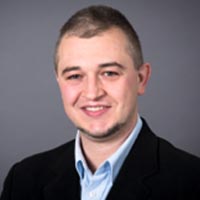
Jesús Esteban Serrano
Jesús is a Lecturer in Chemical Engineering at The University of Manchester in July 2020.
His research interests revolve around the themes of Chemical Reaction Engineering, Green Chemistry and Process Intensification, with projects aiming at a cleaner and more sustainable production and separation of value-added chemicals from renewable substrates. Some examples include the production of (bio)fuel additives and other chemicals starting from substrates like glycerol (by-product of biodiesel) or lignocellulosic sugars, where the focus of his studies lie on reaction kinetics, phase equilibria and green solvent selection.
His efforts have been acknowledged with the Green Talents Award of the German Ministry of Education and Research (2016), the Excellence Award in Chemical Reaction Engineering of the European Federation of Chemical Engineering (2018), the CAS Future Leaders Prize (2018) and the Hermann Neuhaus Prize of the Max Planck Society (2020), among others.
View website / Contact Jesús
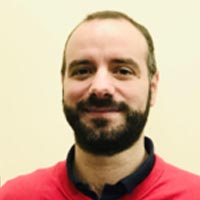
Vincenzo Spallina
Vincenzo is a Reader in the Department of Chemical Engineering
His research combines experimental activity, modelling and technology assessment for low-carbon energy, biofuels and CCUS ans he is leading the Sustainable PRocess INtensification Group (SPRING).
He has been awarded as personal share over £6M as PI or Co-I for different funding sources including industry, UKRI, EU Commission and the Department of Energy Security and Net Zero.
He is currently the project coordinator and PI of an EU-H2020 project on negative emissions aviation biofuels (H2020 GLAMOUR), PI of an EPSRC project (EP/S030654/1) and project coordinator of the DESNZ-funded project Phase II for the Hydrogen Supply Competition 2 (£ 5.1m), Co-I in an H2020 project (H2020 C4U), EPSRC (EP/V026089/1)
He has published 60+ academic papers (Citations: 1560+; h-index: 24).
At the University of Manchester, he is also the academic lead of the Sustainable Hub for industrial Engineering aiming at scale up new technologies to TRL5/6 level and He is the James Chadwick Building Academic Lead.
Contact Vincenzo
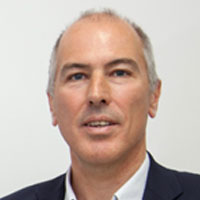
Michael Turner
Mike is a Professor of Materials Chemistry and Director of the Organic Materials Innovation Centre (OMIC) within the Department of Chemistry. Mike is principal investigator for the Knowledge Centre for Materials Chemistry at The University of Manchester, a virtual centre of expertise providing multi-disciplinary research and innovative knowledge transfer based on world class capabilities in applied materials chemistry.
His research covers a broad range of functional organic materials and encompass the synthesis, optimisation and development of these materials for new applications in industry. Key areas of interest are the synthesis of novel monomers and polymers, materials for electronics, and the conversion of bio-derived feedstocks to sustainable aviation fuels. He is the co-founder of Chromition Ltd and has recently worked extensively with C3Biotechnology Ltd. to deliver a chemical process at scale (>10L) to produce sustainable aviation fuel from bio-derived feedstocks.
View website / Contact Michael
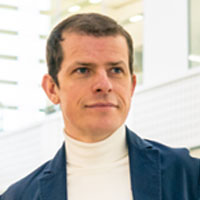
Neil Dixon
Our research interests span synthetic biology, biosensors, cellular transport, and metabolic control. We are currently exploring a number of applied research areas including; i) the development and application of genetically encoded biosensors, for sensing, control and communication within and between engineered microbial strains, ii) development of consolidated bioprocesses and use of alternative non-energy crop feedstocks for bioproduction, and the iii) use of mobile genetic elements with catabolic payloads for bioremediation of xenobiotics.
View website / Contact Neil
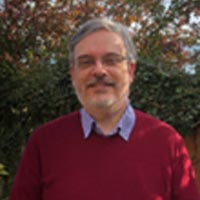
Nigel Scrutton
Nigel is a Professor of Enzymology and Biophysical Chemistry at the University of Manchester and Director of the UK Future Biomanufacturing Research Hub funded by EPSRC/BBSRC. He is internationally recognised as a leader in the fields of enzyme engineering, structure and mechanisms, and biomanufacturing using synthetic biology and biocatalytic approaches.
He has held key managerial positions such as the Director of the Manchester Institute of Biotechnology (MIB) and PI/Director of the Synthetic Biology Research Centre for fine and speciality chemicals production SYNBIOCHEM. Nigel co-founded C3 Biotechnologies Ltd, which is engineering biology and innovating biomanufacturing technologies to commercialise chemicals/fuels production.
View website / Contact Nigel
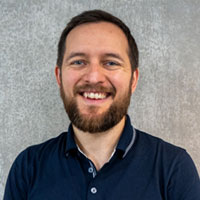
James Winterburn
James is a Reader in Chemical Engineering with a research focus on developing scalable, efficient manufacturing methods for a range of biobased chemicals via a bioprocessing and biochemical engineering route. He previously commercialised patented biosurfactant production and separation technology via Holiferm, spun out from the Winterburn Research Group in 2018.
Contact James

Rosa Cuéllar-Franca
Dr Rosa M. Cuéllar-Franca is a Senior Lecturer in the Department of Chemical Engineering at The University of Manchester. Her research focuses on the sustainability assessment of novel technologies for climate change mitigation on a life cycle basis, providing quantitative evidence that enables targeted improvements at various system levels, such as molecular and process design, process operation, and policy making.
Her work has centred around developing more environmentally sustainable ionic liquids, catalysts, bio-based chemicals and nanomaterials for cleaner technology development.
She is an expert in life cycle assessment (LCA), carbon footprinting, and life cycle costing. She is author of over 30 peer-reviewed papers and her recent article on ionic liquids “A life cycle approach to solvent design: Challenges and opportunities for ionic liquids – application to CO2 capture” has won the Reaction Chemistry & Engineering 2021 Outstanding Early Career Paper Award in recognition of her potential to influence future directions in the field.
Contact Rosa
Shell Staff
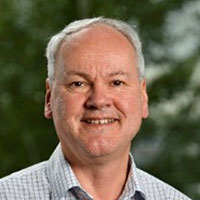
Jeremy Shears
Jeremy leads leads Shell’s strategic thinking and innovation agenda to enable the company to thrive though the energy transition, with a particular focus on biosciences. This includes liquid biofuels, renewable natural gas, circular & bio-based chemicals and Nature Based Solutions (natural ecosystems as carbon sinks). He is a member of the Shell Science Council, which comes together with leading external scientists and technology experts from top universities around the world to help Shell stay at the forefront of energy technology innovation. Prior to this, Jeremy was General Manager in Shell’s Projects & Technology division where he was responsible for R&D on advanced biofuels and hydrogen at Shell’s technology centres in Netherlands, USA, UK and India.
Jeremy joined Shell in 1986 and has held various commercial and technology management positions based in the UK, Belgium, United Arab Emirates, India and Singapore, covering a variety of business areas including chemicals, lubricants, product safety, biofuels and new energies. He holds a PhD in Biochemistry from the University of Bristol and is a Fellow of the Royal Society of Chemistry and the Royal Society of Biology. He sits on several government and academic advisory boards in UK, EU, Canada and India. He is Honorary Professor in Chemistry at the University of Manchester.

Dr Lisa Brook
Lisa is responsible for engaging with highly regarded academia and research institutes to build mutually beneficial External Technology Collaborations (ETCs) centred on innovative technologies that have the potential to solve key energy challenges.
One such ETC of key strategic importance to help Shell meet its Net Zero emissions targets is the Prosperity Partnership with University of Manchester which look to find new ways of manufacturing the chemicals and energy feedstocks needed for many every-day products through industrial biotechnology routes, with multiple translation opportunities across Shell.
Lisa is a Chemical Engineer by first degree, PhD Chemist, who has worked for Shell for 29 years. For the majority of this time, she has worked in Fuel Technology, developing and deploying new automotive fuels to support Shell’s Mobility business; she also spent 4 years as the Technology Manager for Ferrari, responsible for all fuel and lubricant products in the Formula 1 race car; and 4 years in the Retail business as a global brand manager responsible for marketing automotive fuels, when she also got a marketing degree.
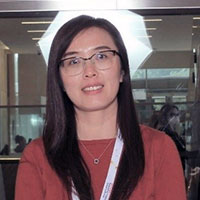
Ping Liu
Ping is a Project Lead in Bioprocesses and Circularity team of Shell. She has deep technical knowledge in molecular biology, microbial host development, and fermentation strategies for low carbon fuel/chemical production, with more than 15 peer-reviewed publications in related areas.
Ping joined Shell in 2019, she currently is leading Shell Next Generation Breakthrough Research-Bioscience program for renewable chemicals and fuels production, and managing projects collaborated with worldwide academic partners including University of Manchester, University of Exeter, University of Berkeley etc. Ping has a PhD degree in Microbiology from Iowa State University and worked on biofuels & bio-chemical production as a postdoctoral associate at Rice University, both in the USA.

Shrikant Survase
Shrikant is a Senior Scientist Bioprocesses with Bioprocess and Circularity team at Shell. He has a PhD degree in Bioprocess Technology from Institute of Chemical Technology, Mumbai, India and worked as Postdoc for continuous process development of lignocellulosic biofuels project at Aalto University, Finland. He has been working in bioprocess development of biofuels and biochemicals for more than 14 years.
He has developed processes for different biomolecules including liquid biofuels, enzymes, biopharmaceuticals, and biopolymers. He has 46 research publications, 9 reviews and 2 book chapters in bioprocess development area. Shrikant has joined Shell in 2019 and currently leading the bioprocess development and de-risking program for demonstration and commercial scale lignocellulosic ethanol project. He is involved in proposal evaluations and due diligence process for the technologies involving bioprocesses. He has been working with multidisciplinary project teams like research, engineering, and projects to design and execute project plans.

Sandeep Jain
Sandeep is a researcher in computational chemistry and material sciences team, in Shell Technology Center, Bangalore. He has the expertise and technical knowledge in condensed-material physics, material science, fuels, and chemicals; with more than 10 peer-reviewed publications in related areas. Sandeep joined Shell in 2017, and he is currently working on sustainable next generation fuels project together with OEM partners.
Sandeep has also worked on various multidisciplinary projects on catalysis, bio-chemicals and have managed multiple scientific collaboration with academia. Sandeep has a PhD degree in Physics from Utrecht University, the Netherlands and an integrated master’s degree in Chemistry from Indian Institute of Technology, Roorkee, India.
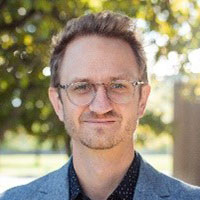
Mark Staples
Mark is a Senior Carbon Solutions Advisor on Shell’s Carbon Strategy team, with expertise in environmental accounting, life cycle analysis (LCA) and novel chain of custody models. He has extensive experience in the evaluation of emerging technologies to enable the transition to a decarbonized and circular economy (e.g. SAF, H2 and NH3 production and supply chains, chemical recycling, RNG), and the development of new business models to pass the environmental attributes of lower carbon products down the value chain.
Before joining Shell in 2019, Mark earned a PhD in Engineering Systems from the Massachusetts Institute of Technology, where his graduate and post-doctoral work focused on quantifying the environmental and economic trade-offs of SAF production technologies.

Jan Klok
Jan is a biotechnologist with a specialization in process technology, currently working as a Scientist in Process Development at Shell. He earned his PhD in Environmental Technology from Wageningen University in the Netherlands.
Throughout his career, he has led numerous research initiatives within multidisciplinary teams, focusing on areas such as biological desulfurization, ammonia oxidation, mercaptan reduction, CO2 conversion, and biorecovery. Klok’s work has focused on bridging the gap between industries and scientific institutes. He has expertise in advancing technology from laboratory experiments through pilot plants to commercialization.
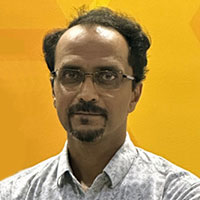
Dr. Vikrant Urade
Vikrant is a Chemical Engineer by training, with a bachelor’s degree from ICT Mumbai and a doctorate from Purdue University. Vikrant is currently a Principal Researcher in the Next generation Breakthrough Research (NBR) team at Shell Technology Center Bangalore.
During his 17 years at Shell, he has moved through various assignments on technology development and deployment, including the development of refining catalysts to produce clean fuels, development of novel processes to produce biofuels from waste and residual biomass, developing decarbonization options for energy and chemicals parks by valorizing fuel gas and other waste gas streams to non-energy products, and enabling circular economy by developing processes for chemical recycling of various types of waste plastics.
Vikrant is passionate about experimentation, enabled and accelerated by digital tools to reduce the speed from the lab to the market. In his current role in the Pathfinding team, he is responsible for scouting and supporting novel technologies for low-carbon molecules and energy that will play a critical role in the Energy Transition.
Research team
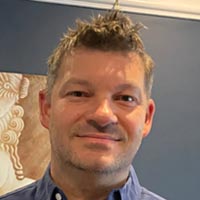
Karl Payne
Karl is responsible for the administration and management of the SuCCEED partnership. Prior to this current role, Karl was a laboratory based researcher with 20 years experience in academia and the biotech industry. His fields of research were Synthetic Biology, Biocatalysis and Extremophilic Enzymes.
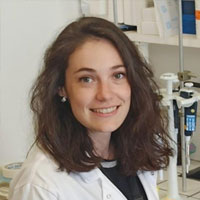
Lea Gourbeyre
Lea is a research associate responsible for developing and improving enzymatic route for in vitro conversion of biocompatible precursors. Prior to this position, she held associate position under the direction of Prof. S Flitsch and did her PhD in France where she developed multi-enzymatic cascades to access a variety of aminoalcohols with very high selectivity.
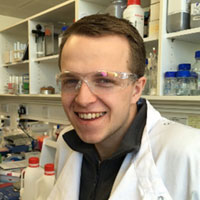
Ross Smithson
Ross is a research associate focusing on protein engineering within the SuCCEED partnership, specifically utilising directed evolution to optimise natural enzymes for the production of valuable chemicals. Prior to this role, Ross completed his PhD at the University of Manchester under the supervision of Prof. Anthony Green, where he gained broad experience across a range of engineering projects, including enzymatic plastic degradation and photoenzymatic catalysis.
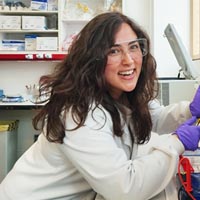
Micaela Chacón
Micaela is the research associate responsible for developing genetically encoded biosensing tools to aide strain and enzyme engineering. Prior to this role, she held associate positions at the Universities of Manchester, Leeds, and Bath where she worked in microbial metabolic engineering and synthetic biology.
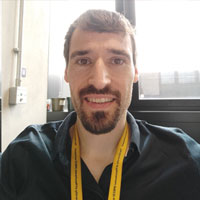
Robin Hoeven
Robin is a technical specialist in Bioprocessing and lab manager for the Biochemical Engineering labs.
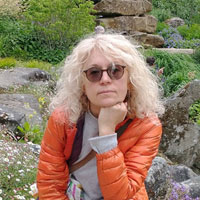
Marina Golovanova
Marina has obtained her B.Sc. in Biotechnology and Chemical Engineering at MITHT. She joined The University of Manchester as a Research Technician in 2000 and has worked with several groups across a range of areas including structural biology, microbiology, molecular biology. She has experience in production, isolation and purification of recombinant proteins. Specializing in usage of FPLC system. She provide support for laboratory running and H&S. Additionally, her role include care of the various MIB communal equipment, training students and PDR.

Adam Zaidi
Adam is the research associate responsible for chemical process design & scale-up within the Sustainable Process Intensification Group in the Department of Chemical Engineering.
Adam received his PhD in Chemical Engineering from the University of Manchester in 2024, where he developed novel materials for hydrogen production via chemical looping under the supervision of Vincenzo Spallina.
Previously, he held the position of Research Associate in the EU-funded H2020 GLAMOUR project for the production of sustainable aviation fuels (SAFs).

Andrew Yiakoumetti
Andrew is a research associate focusing on metabolic engineering of microorganisms for the production of target molecules from renewable feedstocks. Andrew completed his PhD at the University of Nottingham where he developed a metabolic pathway to methacrylic acid in E. coli. Prior to joining the SuCCEED project, Andrew worked on a number of industry-aligned postdoctoral research projects where he developed and tested microbial strains and continuous bioprocesses for the production of chemical products with industrial relevance.
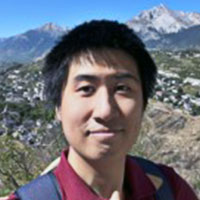
Phavit Wongsirichot
Phavit is a postdoctoral research associate based in the Department of Chemical Engineering.
He obtained his BEng (2013) and MPhil (2014) in Chemical Engineering at The University of Manchester and University of Cambridge, respectively. He then worked as an analyst in the petrochemical and green chemical industry.
He joined the Winterburn Group in 2016 and completed his PhD in 2020, after which he continued as a postdoctoral research associate working on several projects funded by the British Council, Innovate UK and the EPSRC prior to joining SuCCEED.
His area of expertise lies in biorefining and bioprocess development for the valorization of sustainable feedstocks via the extraction of high value components, and the conversion of low value components into valuable bio-chemicals and biomaterials, particularly biopolymers and biosurfactants.

Henry Box
Henry is a PhD student exploring metabolic pathway engineering and enzyme evolution approaches to optimise the production of valuable chemicals with natural enzymes. He recently completed his MSci in biochemistry at The University of Birmingham, under the supervision of Dr Scott White and Prof. Andrew Lovering, where he solved his first high-resolution crystal structures.
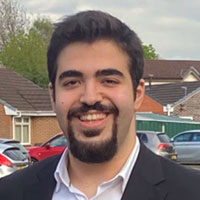
Ahmad Ghanayem
Ahmad is a PhD student in Chemical Engineering within the Sustainable Process Intensification Group, supervised by Dr. Jesús Esteban and Dr. Vincenzo Spallina. He received his MEng degree in Chemical Engineering with Industrial Experience from the University of Manchester in 2024. His research interests revolve around the design, modelling, simulation and scale-up of chemical reactors and separation processes for biochemical production.
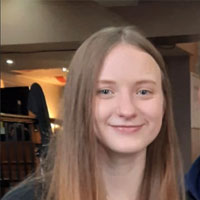
Lani Peel
Lani is a PhD student working under the supervision of Dr. Neil Dixon. She completed her undergraduate degree in Biochemistry at the University of Manchester and followed this up with a molecular biology-based summer internship. Her current research spans microbial metabolic engineering and development of biosensors to help with strain development.
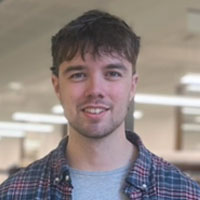
William Chipperfield
William is one of the SuCEED PhD students at the Manchester Institute of Biotechnology, under the Dixon Group.
He completed his Undergraduate (BSc) in Zoology (2023) at the University of Manchester and Postgraduate (MRes) in Biotechnology and Biodesign (2024) at Newcastle University. His current research interests are within synthetic biology and metabolic engineering.
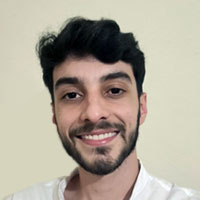
José Miguel Júnior
José Miguel is a PhD student in Chemical Engineering under the supervision of Dr. Rosa Cuéllar- Franca and Dr. James Winterburn. He recently completed his MSc in Biotechnology at the Federal University of Alfenas (Brazil), where he also completed his BSc in Biotechnology in 2022. His PhD research focuses on the Life Cycle Assessments (LCA).

